After I accidentally read all six volumes of the manga Blue Flag in just a couple of days (it would’ve been one whole day if I didn’t have to get sleep for work), I couldn’t wait to get to this volume. Volume 7 picks up right where the previous volume left off and sets us up for an emotional finale this June with Volume 8.
Synopsis for Blue Flag Volume 7
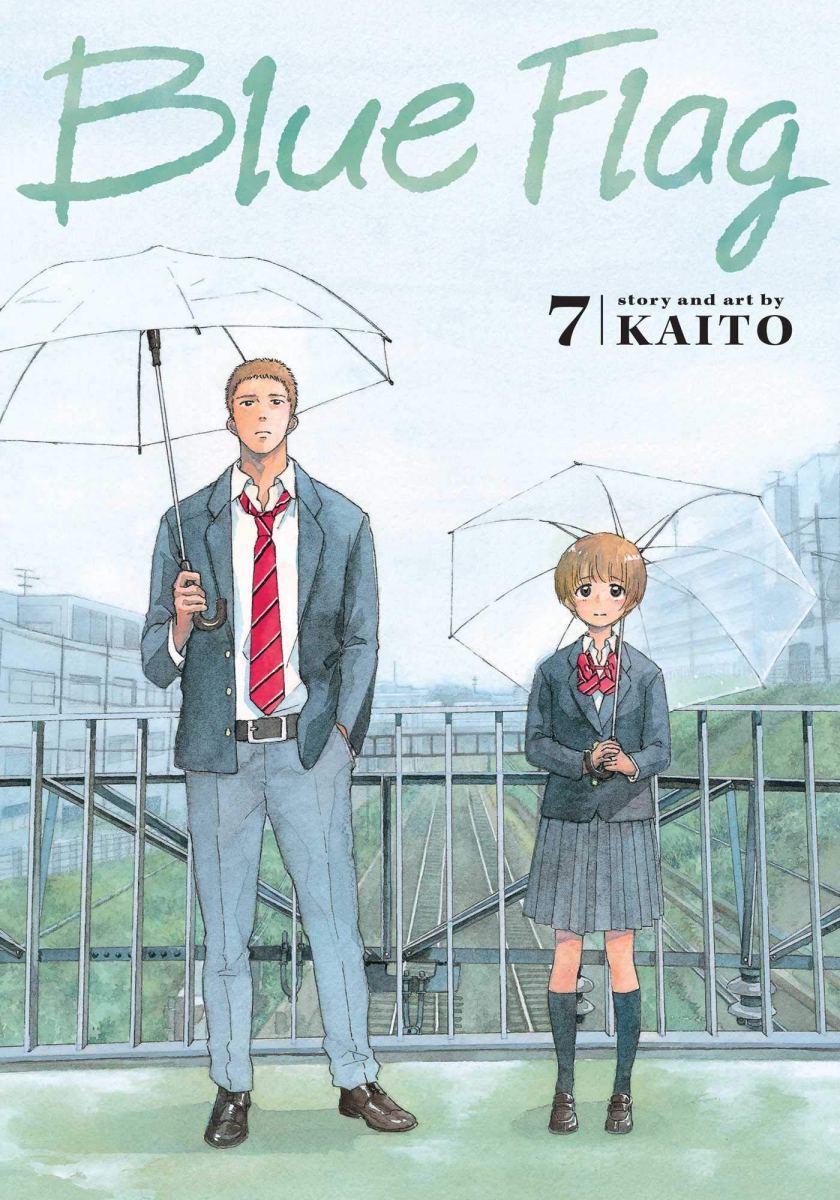
Rumors spread like wildfire after Toma’s shocking confession during the culture festival, and Taichi feels confused and uncertain. The others in their circle are soon affected as well. Meanwhile, Toma’s brother Seiya sits him down for a frank talk. All the thoughts and emotions everyone has kept hidden are finally coming to light, and relationships begin to change.
Review
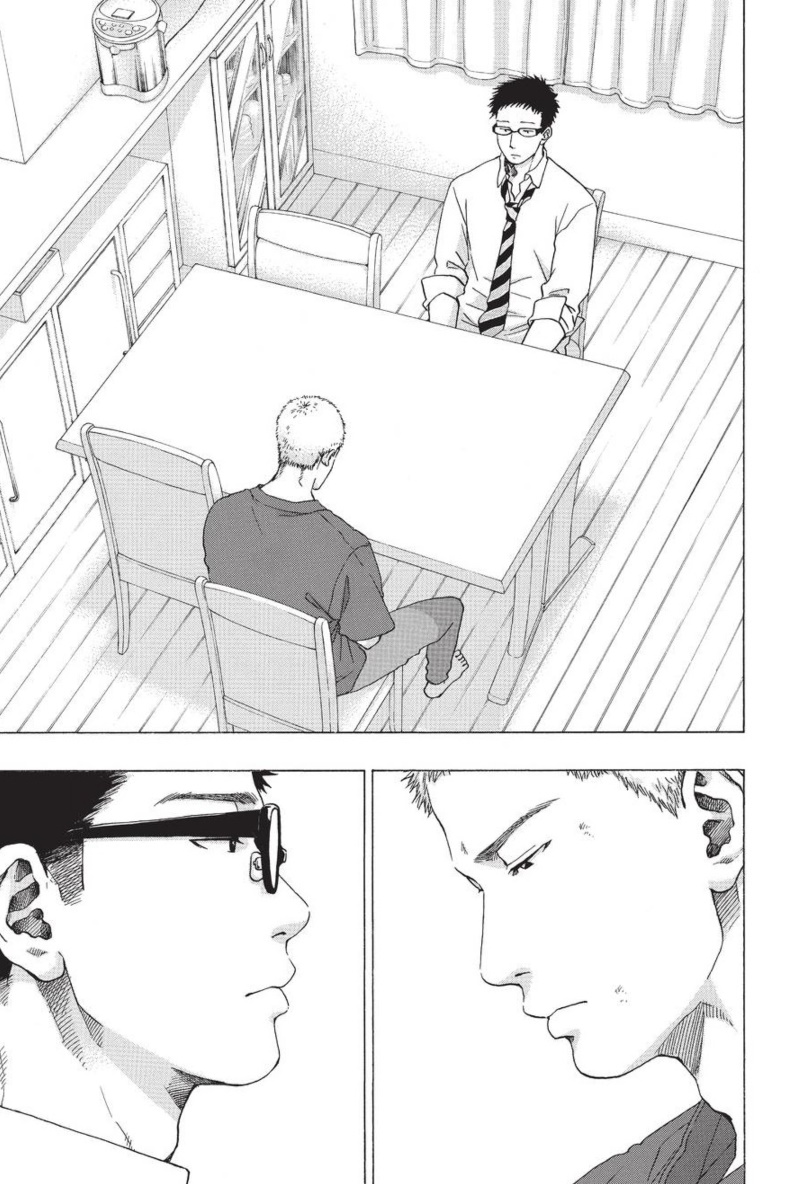
Hole.
E.
Shit.
This volume doesn’t pull its punches and shows us how all of our main characters are feeling after Toma confessed his feelings for Taichi.
First of all, I have to say that being left on read with that Volume 6 cliffhanger was a lot. It’s not just the love confession, but it’s the way it was executed. There were several panels with no dialogue, just images of the two boys sharing the same space but not really knowing what to say to each other.
This is something this series does very well.
There are these quiet moments where characters aren’t saying anything, but you can feel the emotions the manga’s trying to convey. We’ve seen the rumors going around about Toma after he revealed to Mami that he loves Taichi, Kensuke overhearing and fighting with Toma about it. Taichi, obviously, has heard these rumors, because everyone has. We don’t need an inner monologue to tell us what Toma’s thinking, we’ve seen all the events leading up to this moment.
So it’s just … quiet … until Toma finally tells the truth, Volume 6 ending with him smiling and apologizing to Taichi.
It’s so tragic, but so REAL because I absolutely believe that Toma would feel bad for loving Taichi. It’s not just because he’s struggling to figure out who he is as a person, it’s because it will, inevitably, change the nature of their relationship, something they just now started to regain. They were close as children but drifted apart, finding each other again in high school, so I think Toma would feel bad about rocking the boat – ESPECIALLY since Taichi has a girlfriend, a girl who Toma’s also friends with.
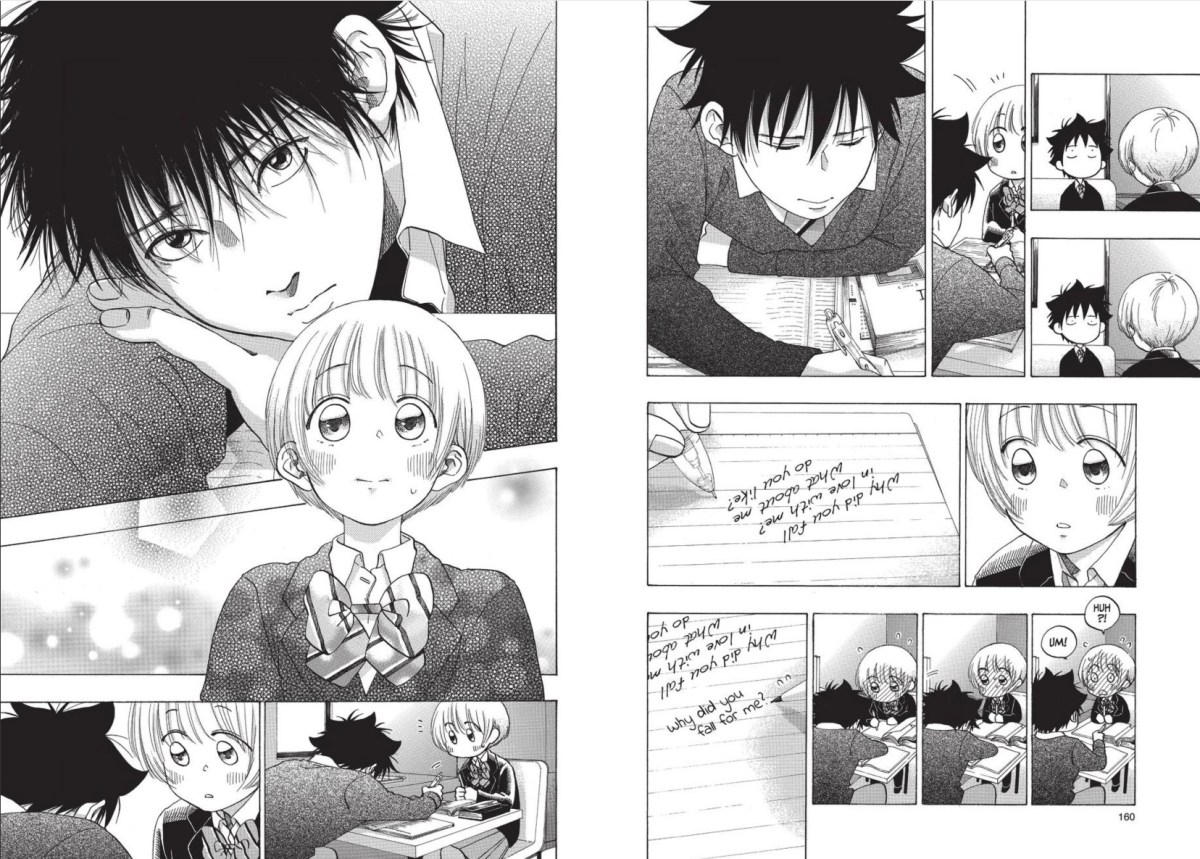
The whole thing is messy, and Volume 7 starts to make sense of it all.
There are a lot of things I enjoy about this volume. First and foremost I love that there isn’t this overwhelming homophobic response to Toma’s confession. That’s not to say it isn’t there, it’s not like everyone is on board, but there are responses from students who really don’t care and who focus on things that I think students would focus on. The ones we know as the popular kids, for example, are surprised that Taichi is his crush because Taichi is so plain in comparison. They don’t even care that Toma’s gay, they’re more concerned with who his chosen love interest is.
It’s so … high school, right down to students pointing out the bigger issue: Taichi has a girlfriend already!
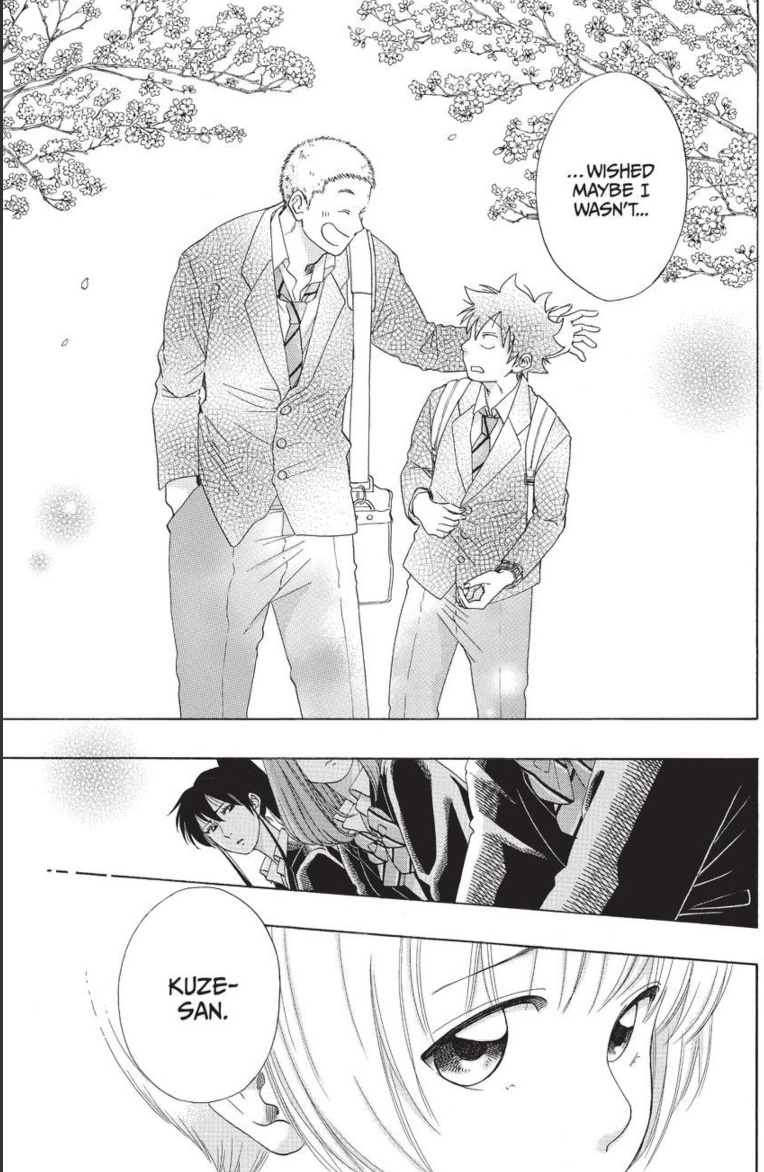
The popular girls (Mami’s friends, Shouko and Sayaka) even comment on how Futaba’s got her work cut out for her since Toma is a childhood friend. It feels like a very genuine reaction instead of having the entire school pearl-clutching about Toma being gay.
As for the ones who aren’t on board, Kensuke and Shingo in particular (but especially Kensuke, who started the fight with Toma), we get a REAL important conversation with these two boys, Shouko and Sayaka, and Taichi sitting and literally listening to both sides of the argument. It’s not the easiest thing to read since, on a personal level, the argument against the queer community is one I’ve heard many times before, right down to Shingo telling the girls they’re being unfair for not wanting to hear Kensuke’s side and assuming he’s just a bigot. Kensuke’s got his reasons, and interestingly enough, he still wants to, somehow, preserve his friendship with Toma, he just also has to face his own feelings on the matter.
He doesn’t feel maliciously homophobic, he feels like a teenager who’s still learning and growing.
And that’s why this scene (and the entire series, really) is so important to me. It’s showing young characters having these kinds of conversations and exploring their feelings. There’s this dreadful assumption that children are too young to understand queer issues, but honestly, if they learn, and explore, these topics NOW, that’ll help them grow as well-rounded adults. The exhausting thing about this conversation isn’t that it’s happening, it’s that in my own life, I’d hear these arguments against the queer community from ADULTS, from folks who hadn’t stepped back to think of someone else’s feelings, from peers who wouldn’t mind gay people but why do they have to flaunt it/get married/insert anything, really.
I would always wish that they’d worked this all out at a younger age, and in order to do that, you have to have these conversations at, well, a younger age.
What I want from people outside the LGBTQ+ community is the compassion to, at least, let me live my own life, and that’s something that should be discussed with folks at a young age, NOT when they’re a full-grown adult whose developed closed-minded opinions. Now that Kensuke has talked it out, there’s a chance he can come to a conclusion that leads to him still having a friendship with Toma, and one that helps him work out his own difficult reasons as to why he’s uncomfortable with homosexuality.
There’s a trigger warning for his reason, btw. I’m not sure how readers will like this “character has a tragic reason for his issues with homosexuality” twist since it’s a reason that’s used against the queer community (and an assumption about the community being full of predators), but Kensuke is trying to work through it and, in the long run, isn’t unapologetically demonizing the community about it. He’s stating the facts on why he’s uncomfortable, but you can tell he still wants to be Toma’s friend. He’s a very black and white kind of guy, has been since we first met him, so it’s gonna take a minute for him to see past that.
Hence me being happy that this is happening NOW in his life. He shouldn’t have to sit with this well into adulthood. Not only will this (hopefully) help him with his views on the community, but it’ll help him face the pain he’s been hiding this whole time.
Having these discussions at a young age also lets queer kids know that they aren’t alone, something we see reflected with Masumi. The way she’s been dealing with her feelings for Futaba and her queerness has been different from Toma, and I greatly appreciate having TWO queer characters with TWO different stories. Our journeys are not the same, so I like that we’re getting two different perspectives. Toma is much more reserved, more quiet, unsure of what to say, and unsure of how to deal with his feelings. This is different from Masumi, who just assumes that her friends are never gonna understand.
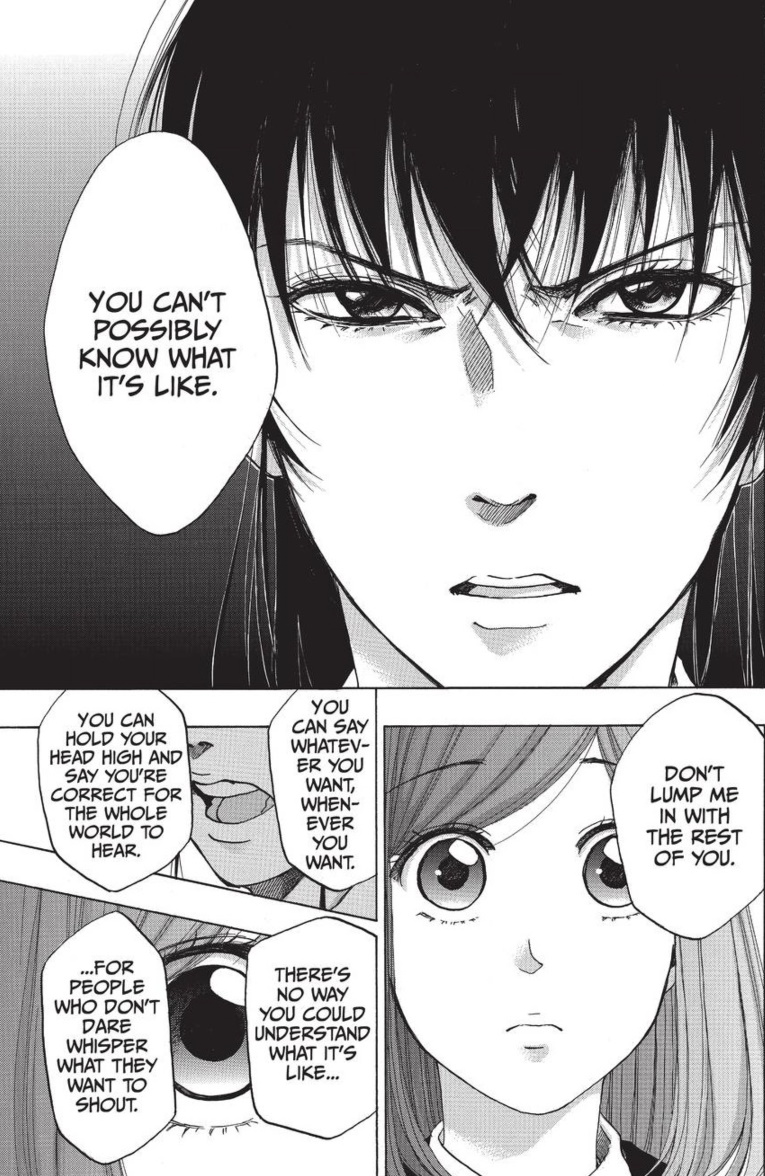
Both of these reactions are valid and real, and both of them are addressed in a way that can, hopefully, help these two characters when we get to the last volume. In the end, not everything is set in stone, but we at least are headed in a direction where it could be.
Honestly, I love ALL the characters and their friendship, so I have no idea how this could work out in a way where everyone comes out happy in the end. What I love about that, though, is that neither Taichi nor Futaba expresses discomfort over Toma being gay, the discomfort comes from the nature of the situation. Toma is in love with Taichi, and Taichi cares deeply for him, but Taichi’s in a relationship with Futaba and cares about her, too, but she cares for Toma as a friend while Toma cares for her, too.
And all of them, and every relationship thread between them, is so damn likable.
You can check out Blue Flag Volume 7 here!
And you can preorder the final volume here!
(Image: KAITO/SHUEISHA Inc.)
Want more stories like this? Become a subscriber and support the site!
—The Mary Sue has a strict comment policy that forbids, but is not limited to, personal insults toward anyone, hate speech, and trolling.—



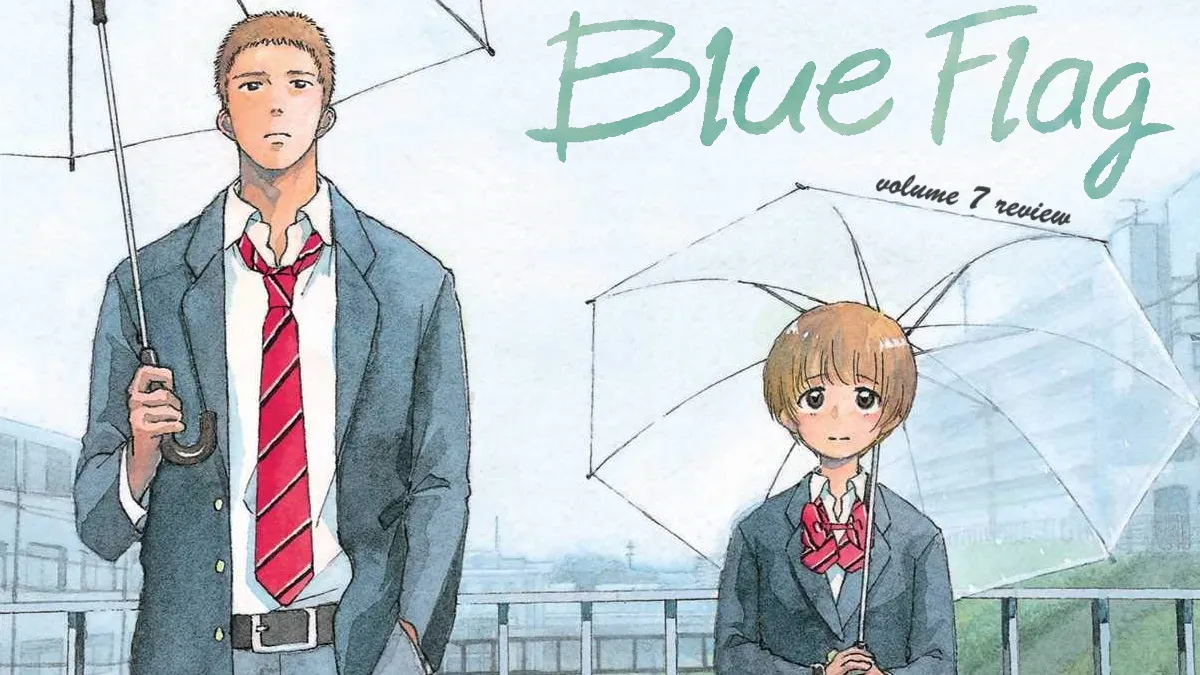

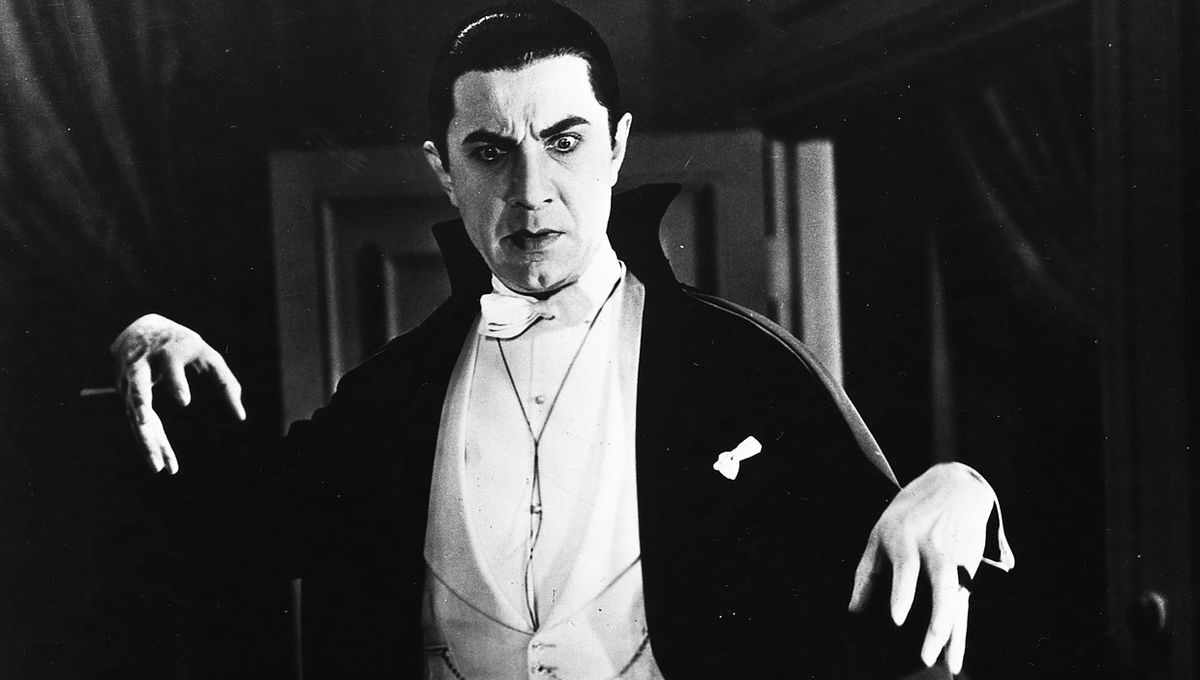




Published: Apr 23, 2021 02:41 pm